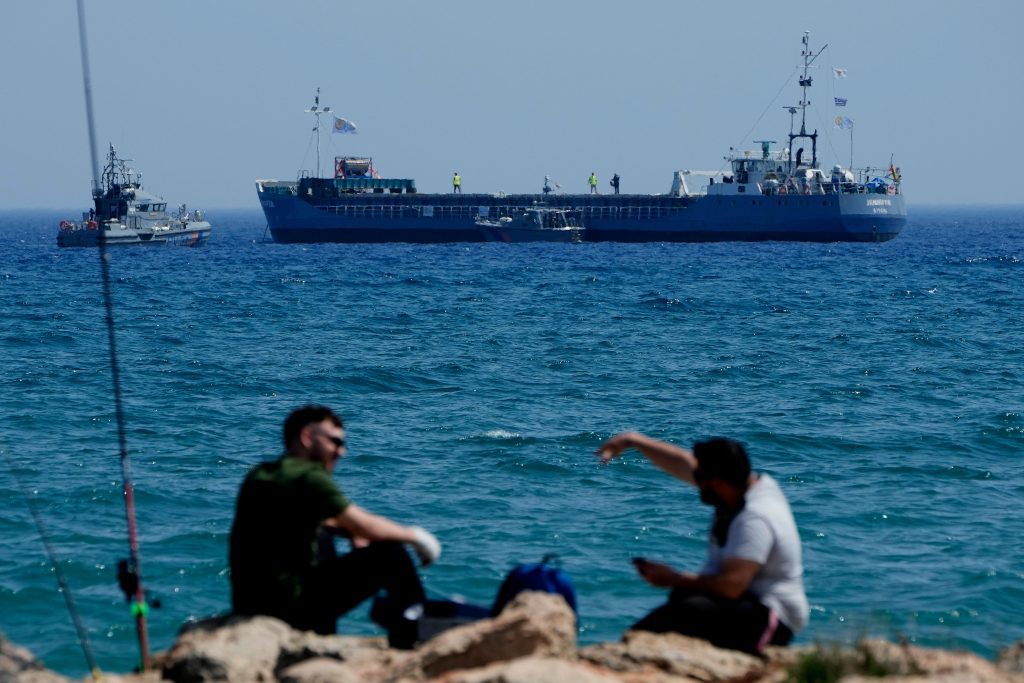By Tia Goldenberg, Associated Press
JERUSALEM (AP) — World Central Kitchen, the food charity established by famous chef José Andrés, stopped its operations in the Gaza Strip following an Israeli strike that killed seven of its workers, most of whom were foreigners.
The organization, which stated that it will soon make decisions about its long-term plans in the region, has been providing much-needed food to Gazans facing widespread hunger and was the first to launch efforts to deliver aid by sea from Cyprus. Its absence, even if temporary, is expected to worsen the suffering in the war-torn territory as the United Nations warns that famine is approaching.
Here’s an overview of the charity’s work in Gaza and the potential impact of its absence:
WHAT IS WORLD CENTRAL KITCHEN?
Established in 2010, World Central Kitchen delivers freshly prepared meals to individuals in need following natural disasters, such as hurricanes or earthquakes, or to those enduring conflict. The group has also provided meals to migrants arriving at the southern U.S. border, as well as to hospital staff who worked tirelessly during the coronavirus pandemic.
The aid group sends teams who can cook large-scale, locally appealing meals quickly.
“When you talk about food and water, people don’t want a solution one week from now, one month from now. The solution has to be now,” Andrés is quoted as saying on the group’s website.
World Central Kitchen has worked in numerous affected areas and currently has teams in Haiti, addressing the needs of Ukrainians displaced by Russia’s invasion, as well as providing meals to people affected by the war in Gaza.
WHAT HAS IT DONE DURING THE WAR IN GAZA?
Teams from the charity have spread across the region since Hamas-led militants attacked southern Israel on Oct. 7 and throughout the war that it sparked. It has fed Israelis displaced by the attack as well as former hostages, according to its website, and people in Lebanon displaced by fighting with Israel. But its work in Gaza has been the most demanding.
In Gaza, the group says it has provided more than 43 million meals to Palestinians.
The group has set up two main kitchens, in the southern city of Rafah and the central town of Deir al-Balah. It lends support to 68 community kitchens throughout the territory, serving more than 170,000 hot meals a day. The group increased its efforts during Ramadan, the holy month when Muslims traditionally fast from sunrise to sundown and then eat a lavish meal, distributing 92,000 food boxes or about 4.7 million meals.
The group has also provided meals through airdrops and has led two shipments by sea carrying hundreds of tons of food for northern Gaza, where the food emergency is most acute.
In an interview with The Associated Press last month, Andrés credited the charity’s sea deliveries with prompting the U.S. to declare that it would build a floating pier for aid delivered to Gaza by sea.
“I think this has been our achievement,” he said.
WHAT WILL THE CHARITY’S ABSENCE MEAN FOR PEOPLE IN GAZA?
With World Central Kitchen immediately suspending its work, tens of thousands of meals a day won’t be handed out.
After the deadly attack, a spokesperson from Cyprus’ foreign ministry mentioned that aid ships which arrived in Gaza this week will go back to Cyprus with around 240 tons of aid that was not delivered. The spokesperson noted that about 100 tons have already been unloaded.
Other aid organizations are still providing help to Palestinians on the ground, including the U.N. However, aid groups say that supplies are not arriving fast enough. not coming in quickly enough and once they have entered Gaza, delivery is hindered by logistical issues as well as the ongoing fighting. Israel denies that there is a lack of food in Gaza and accuses the U.N. and other aid groups of not increasing their deliveries within the territory.
World Central Kitchen was involved in the first two sea shipments that reached Gaza. It is unclear how the sea corridor will continue without this group, but the president of Cyprus mentioned on Tuesday that more aid could be transported to Gaza from Cyprus “before the end of the month,” as the U.S. finishes building a floating pier off the coast of the Palestinian territory.
President Nikos Christodoulides stated that the Cyprus-Gaza aid shipments will go on as long as there are humanitarian needs.









